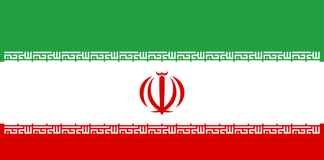Oil prices on Thursday, November 30, soared as an OPEC-led meeting started in Vienna after initial comments from the group’s members suggested an extension of current crude output curbs until the end of 2018 would be its most likely outcome.
The Organization of the Petroleum Exporting Countries is meeting at its headquarters in the Austrian capital, along with ministers from other oil producing countries, including Russia, throughout the day.
The meeting is expected to decide on an extension to ongoing output cuts, which have seen the group reduce oil production by 1.8 million barrels per day, which has bolstered crude prices by 40 percent since the middle of the year.
Comments at a morning session attended only by members of OPEC itself suggested ministers were likely to back a nine-month extension to the deal. As it is due to expire in March, this would draw out the deal until the end of next year.
The most-active February Brent contract was trading 77 cents up at $63.30 a barrel at 1039 GMT, having traded in a range of less than $1. The front-month January contract expires later on Thursday.
U.S. light crude for February delivery was at $57.96 a barrel, up 60 cents.
“A few delegates said that it’s going to be the nine month roll-over and therefore the market is stable,” PVM Oil Associates analyst Tamas Varga said.
“I‘m not saying that the market is going to go through the roof if a nine-month extension is confirmed, but prices are unlikely to fall,” he added.
Confirmation of the deal is expected at the conclusion of the group’s closed session, expected around 1400 GMT.
Though a nine-month extension is likely, it may include a review in June if demand overtakes supply, which could trigger a sharp increase in prices.
Saudi Energy Minister Khalid al-Falih said OPEC could examine progress at its next meeting in June, a move also backed by the Iraqi, Iranian and Angolan oil ministers.
“The main parameters that could warrant a review are changes in the market and changes to prices,” Iraqi Oil Minister Jabar al-Luaibi said.
“OPEC loves leaving an ace card up their sleeve, they will never give everything away (in advance),” said Matt Stanley, a fuel broker at Freight Investor Services in Dubai.
One of OPEC’s biggest problems while cutting supplies has been rising U.S. output, which is gaining global market share and undermining the group’s efforts to tighten the market.
U.S. oil production hit a new record of 9.68 million barrels per day (bpd) last week, according to government data released on Wednesday. [EIA/S]
That is up from 8.5 million bpd at the end of last year, before the cuts were implemented, Reuters reports.











